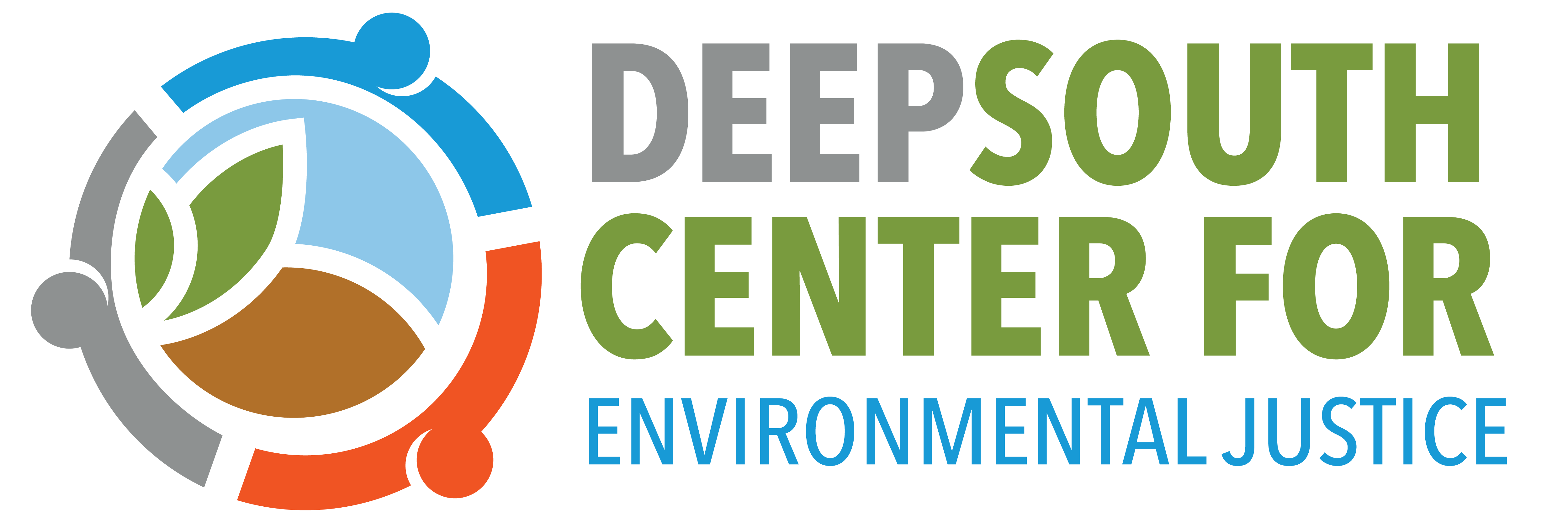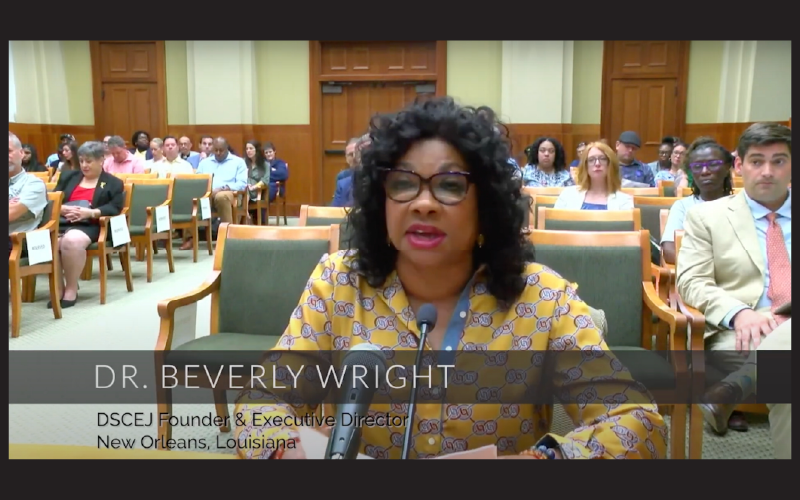
Jun 22, 2023 | Community Engagement News, Dr. Beverly Wright News, DSCEJ General News, Research and Policy News
Deep South Center for Environmental Justice Testifies at EPA’s Public Hearing on Louisiana’s Carbon Capture & Sequestration Program
FOR IMMEDIATE RELEASE: June 22, 2023
Contact: Ginger LeBlanc | gingerl@dscej.org
New Orleans, LA – Yesterday, Dr. Beverly Wright, Executive Director of the Deep South Center for Environmental Justice (DSCEJ), joined environmental justice activists and local community leaders in Baton Rouge to testify in opposition to the Environmental Protection Agency’s (EPA) proposed approval of Louisiana’s Carbon Capture & Sequestration (CCS) Program during the agencies’ three-day public hearing.
The EPA’s public hearing comes at a time when a new wave of gas-burning facilities is being proposed in Louisiana communities where the majority of residents are Black, Indigenous, and poor. Plans for many of these facilities include carbon capture and storage or CCS – a risky process that involves collecting carbon dioxide from industrial waste streams and transporting it via miles of pipeline to areas designated for injecting the carbon dioxide underground for permanent disposal.
Last week, the Louisiana legislature attempted to tackle problems in state laws governing carbon dioxide waste injection. One of these laws significantly reduced the time of a company’s liability for operating a carbon dioxide injection well from 50 years, which is required by federal regulations, to 10 years. The recent changes to the state laws trigger another review by the EPA with the opportunity for public notice and comment.
“Today’s hearing by the EPA is more than whether DNR should have this permitting authority over the Class VI Underground Injection Control Program, it’s about our future,” said Dr. Beverly Wright, Founder and Executive Director of the Deep South Center for Environmental Justice. “Who wants a future that repeats the past of leaking and broken-down oil and gas wells that are abandoned by companies? This is what we have with state laws that place the burden on the people of Louisiana to pay for and remedy the damage that occurs from carbon dioxide injection wells, and allow companies to walk away from the liabilities imposed by federal regulations.”
DSCEJ also provided the EPA with critical information about the state’s proposed program and the risks of CCS:
With a record of failure and mismanagement that resulted in destroying the Bayou Corne community, harming children and adults in Grand Bois, and leaving the state littered with leaking oil and gas wells, the Louisiana Department of Natural Resources (DNR) submitted a flawed application for authority to permit underground injection of carbon dioxide (CO2) that is collected from the waste stream of industrial facilities.
1. Carbon dioxide is hazardous
- The National Institutes of Health (NIH) reports carbon dioxide is an asphyxiant and toxicant. Carbon dioxide displaces oxygen in the air we need to breathe. High concentrations of carbon dioxide can result in death. Within one minute of CO2 poisoning, a person can pass out and suffer respiratory arrest.
- On February 22, 2020, in Satartia, Mississippi, people were not able to escape a major CO2 release from a pipeline rupture because their cars stalled out due to the clouds of carbon dioxide that displaced oxygen.
2. Carbon dioxide waste injection increases risks
- Carbon dioxide corrosion can break down the metals in pipelines and containers and leak out with the potential for contaminating the environment, including waterways and groundwater sources for drinking water.
- Carbon dioxide can also break down rocks underground and, like an earthquake, cause things to shift above ground. Louisiana has numerous fault lines that increase the potential for earthquake incidents occurring from carbon waste injection.
- Abandoned oil and unplugged gas wells can serve as straws for carbon dioxide to move upward to the atmosphere and increase climate risks, which defeats the entire purpose for carbon capture and storage or CCS.
3. Oil and gas companies lobbied to shift liability for damages caused by carbon dioxide waste injection to the people of Louisiana
- The damage that can be caused by a carbon dioxide waste injection well is clearly known to oil and gas companies.
- Their lobbyists pushed a bill through the Louisiana legislature that shifts liability to the people of Louisiana to pay for remedying this damage.
- This new law is in conflict with EPA’s federal requirements.
4. The Louisiana Department of Natural Resources (DNR) has a record of failure.
- The Louisiana State Legislative Auditor has issued reports on DNR’s failure to regulate oil and gas wells.
- DNR’s failure to protect the Grand Bois community from oil waste led to severe health injuries suffered by children and adults.
- DNR’s failure to monitor and regulate resulted in the catastrophe of the ground giving way under the Bayou Corne community in 2012.
5. The DNR plans to give management of carbon dioxide waste injection to unnamed and unknown companies.
- In its application to the EPA, the DNR states that it will outsource the management of carbon dioxide waste injection wells to unnamed and unknown companies.
- Permanent underground storage of carbon dioxide has never been done before and involves significant risks for communities and our environment.
View the testimony
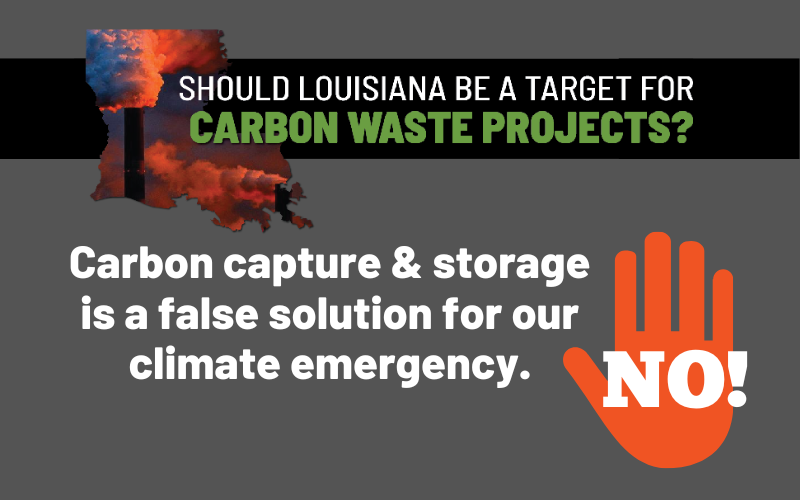
Jun 21, 2023 | Community Engagement News, Dr. Beverly Wright News, DSCEJ General News, Research and Policy News
Jun 21, 2023
New Orleans, LA – Today, Dr. Beverly Wright, Executive Director of the Deep South Center for Environmental Justice (DSCEJ), will testify using the following remarks as prepared for delivery during the EPA’s Public Hearing in opposition to the agency’s proposed approval of Louisiana’s Carbon Capture & Sequestration (CCS) Program.
I am Dr. Beverly Wright, Founder and Executive Director of the Deep South Center for Environmental Justice based in New Orleans, Louisiana. I oppose approval of the Louisiana Department of Natural Resource’s application for primacy to regulate companies that seek to inject carbon dioxide waste underground.
Through education and research, the Center works collaboratively with communities to build their capacity to drive solutions to industrial pollution that harms their health and warms our planet. We have achieved results in strengthening community organizations, improving the health of community members, training 17,000 people for environmental careers with a job placement rate of 91 percent, and moving our state toward an equitable and renewable energy economy. For more than 30 years, we have worked to place equity and justice at the center of environmental, energy, and climate policies. However, after these steps forward, we are now confronted with the possibility of a major step back.
Oil and gas companies are now attempting to push us back and lock us in the continued burning of dirty energy dressed up with carbon capture and storage or CCS for numerous proposed gas plants. They have targeted Louisiana for the underground disposal of their carbon dioxide waste and want to apply to the DNR for permits to do this. Today’s hearing by the EPA is more than whether DNR should have this permitting authority over the Class VI Underground Injection Control Program, it’s about our future.
What will our future be with the approval of a flawed application by the DNR that fails to acknowledge its Constitutional duties as a public trustee include the active and affirmative protection of overburdened communities in Louisiana, who are disproportionately Black, Indigenous and poor and demand environmental justice?
Do we want our future in the hands of the DNR that plans to outsource to unnamed and unknown companies, without any contract terms, the job of managing millions of tons of carbon dioxide waste that can contaminate groundwater sources of drinking water, trigger earthquakes, and migrate above ground through any of the known and unknown unplugged oil and gas wells?
Who wants a future that repeats the past of leaking and broken-down oil and gas wells that are abandoned by companies? This is what we have with state laws that place the burden on the people of Louisiana to pay for and remedy the damage that occurs from carbon dioxide injection wells, and allow companies to walk away from the liabilities imposed by federal regulations.
Our future needs an EPA that will stand with the people of Louisiana who want a healthy and safe place to live for their families and future generations. I call on the EPA to deny the DNR’s application. Furthermore, I request the EPA to re-start this process in order to consider the recent state legislative changes related to carbon dioxide waste injection, and allow for public notice and comment.
Thank you.

Jun 20, 2023 | Community Engagement News, Dr. Beverly Wright News, DSCEJ General News, Research and Policy News, Take Action Alert
FOR IMMEDIATE RELEASE: June 20, 2023
Dr. Beverly Wright, Environmental Justice Activists, and Community Leaders Will Travel to Baton Rouge to Oppose Approval of Louisiana’s Flawed Application
NEW ORLEANS, LA – On Wednesday, June 21, beginning at 1:00 pm CT, Dr. Beverly Wright of Deep South Center for Environmental Justice (DSCEJ) will travel with environmental justice activists and local community leaders to Baton Rouge, where the US EPA will hold the first of a three-day hearing on its draft approval of the Louisiana Department of Natural Resources’ application for authority to permit the underground injection of carbon dioxide waste.
With a record of failure and mismanagement that resulted in destroying the Bayou Corne community, harming children and adults in Grand Bois, and leaving the state littered with leaking oil and gas wells, the Louisiana Department of Natural Resources (DNR) submitted a flawed application for authority to permit an entirely new category of wells for underground disposal of carbon dioxide, a hazardous substance.
The EPA’s public hearing comes at a time when a new wave of gas-burning facilities are being proposed in Louisiana communities where the majority of residents are Black, Indigenous, and poor. Plans for many of these facilities include carbon capture and storage or CCS – a risky process that involves collecting carbon dioxide from industrial waste streams and transporting it via miles of pipeline to areas targeted for injecting the carbon dioxide underground for disposal.
Last week, the Louisiana legislature attempted to tackle problems in state laws governing carbon dioxide waste injection. One of these laws significantly reduced the time of a company’s liability for operating a carbon dioxide injection well from 50 years, which is required by federal regulations, to 10 years. The recent changes to the state laws trigger another review by the EPA with the opportunity for public notice and comment.
WHAT: EPA public hearing on Louisiana’s application for authority to permit the underground injection of carbon dioxide waste
WHO: Dr. Beverly Wright, Deep South Center for Environmental Justice, environmental justice activists, and community leaders
WHERE: Louisiana Department of Natural Resources, LaBelle Hearing Room, 1st Floor, LaSalle Building, 617 North 3rd Street in Baton Rouge, LA
The event will also be live-streamed HERE.
WHEN: Wednesday, June 21, from 1 pm – 5 pm and 6 pm – 8 pm
###
About the Deep South Center for Environmental Justice
Families in the Gulf Coast deserve to live in communities that are free from deadly air and are more resilient to climate change and extreme weather. The Deep South Center for Environmental Justice (DSCEJ) works to empower and engage communities to put environmental justice and equity at the center of all climate action. Led by environmental justice scholar and advocate, author, civic leader, and professor of Sociology Dr. Beverly L. Wright, the DSCEJ uses research, education, and community and student engagement to advocate for policy change, lead health and safety training for environmental careers, develop social and emotional community wellness programs, and create new and environmentally healthy opportunities for the residents of communities disproportionately impacted by historic environmental injustice.
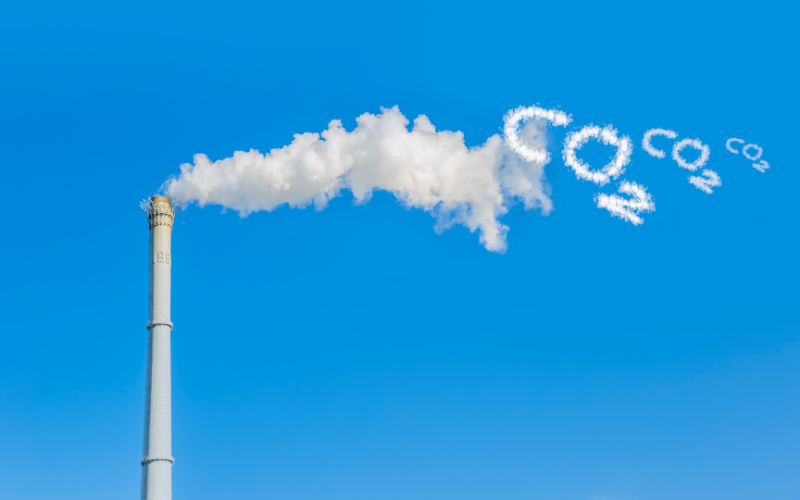
Jun 7, 2023 | Dr. Beverly Wright News, DSCEJ General News, Research and Policy News
FOR IMMEDIATE RELEASE: June 7, 2023
June 1 – 4, 2023
We, the undersigned, attended the National Symposium on Climate Justice and Carbon Management at the Wingspread Center in Wisconsin hosted by GreenLatinos, WE ACT for Environmental Justice, Deep South Center for Environmental Justice, American University’s Institute for Carbon Removal, and the New York Community Trust Foundation. We came as diverse groups representing environmental justice organizations to engage in a productive dialogue on the climate and environmental justice implications, questions, and concerns related to carbon management strategies currently being funded and promoted by the federal government and industries. Much of the conversation and questions focused on concerns related to industrial carbon removal in the form of Carbon Capture and Storage (CCS), Carbon Capture Storage and Utilization (CCUS), hydrogen fuels, and Direct Air Capture (DAC), among others. We write to express the deep concerns and reflections that came out of these discussions which included:
- There is a lack of a holistic consideration of carbon management that ignores the possibilities for a complete transition away from fossil-fueled industries and economies.
- There is no regulatory regime at any level of government – local, state or federal – that can protect environmental justice communities from the cumulative risks and dangers associated with industrial carbon management like CCS. Within the weak regulatory frameworks many of us fight to change, bad actors that fail to enforce environmental regulations are in the process of being approved to hold primary permitting authority over CCS projects.
- These weak regulatory frameworks are further weakened with the recent permitting reforms that strip down the National Environmental Policy Act (NEPA) and could fast-track CCS/CCUS and hydrogen projects.
- Huge financial incentives for CCS/CCUS and hydrogen projects that are in the 45Q and 45V federal tax credits, the Bipartisan Infrastructure Law (BIL), and the Inflation Reduction Act (IRA) are inappropriately investing public tax dollars in risky ventures that could prove harmful to environmental justice communities and worsen climate change without much oversight.
- A discussion of so-called “guardrails” is imprudent and premature when proponents of CCS/CCUS, DAC, and hydrogen fail to acknowledge the known and potential hazards for communities as well as operation failures that increase climate risks. The hazards, risks, and uncertainties of large-scale deployment of industrial carbon removal strategies should not be hidden, ignored or dismissed, but should be clearly identified, defined, and made known as public information.
- What is being proposed at the federal level is undermining wins achieved at the local and state levels to transition away from fossil fuels and harmful co-pollutants like particulate matter to a just and equitable energy economy. Some good examples of state and local gains include the New Jersey Environmental Justice Law, New York Cumulative Impacts Law, and the City of New Orleans Renewable and Clean Energy Portfolio. New Orleans also passed the first prohibition on CCS/CCUS.
- Often overlooked in climate mitigation and resiliency policies and funding opportunities is the consideration of natural, biological carbon sinks, such as the restoration of mangroves, soil improvements, and forest restoration. These approaches also need careful assessment of potential social and equity impacts in their application.
- The overarching purpose of carbon removal should be the complete and rapid transition away from harmful fossil fuels and other sources of industrial pollution, with an absolute priority on reducing chronic disparities of pollution exposure and industrial harm experienced by environmental justice communities.
It’s not lost on us that we convened this weekend at the same location where the Precautionary Principle was developed in 1998. To this end, we affirm that any activity or technology with demonstrated and/or reasonably foreseeable threats to public health and the environment must undertake precautionary measures, even if some causes and effects are not yet scientifically determined. For reasons listed above and more, this absolutely applies to the entire premise of carbon management and associated technologies.
In solidarity,
Dr. Beverly Wright, Founder and Executive Director, and Monique Harden, Director of Law and Public Policy, Deep South Center for Environmental Justice
Peggy Shepard, Co-Founder and Executive Director, and Dana Johnson, Senior Director of Strategy and Federal Policy, WE ACT for Environmental Justice
Dr. Ana Isabel Baptista, Tishman Environment & Design Center, The New School
Maria Lopez-Nunez, Deputy Director, Ironbound Community Corp.
Jennifer M. Hadayia, MPA, Executive Director, Air Alliance Houston
Beto Lugo Martinez, Executive Director, Clean Air Now EJ
Anthony Karefa Rogers-Wright, Director of Environmental Justice, New York Lawyers for the Public Interest
Sharon Lewis, Executive Director, Connecticut Coalition for Economic and Environmental Justice
Dr. Nicky Sheats, Esq., Center for the Urban Environment, John S. Watson Institute for Urban Policy and Research at Kean University
Huda Alkaff, Founder and Director, Wisconsin Green Muslims
Nayyirah Shariff, Director, Flint Rising
Mark Magaña, Founding President and CEO, and Irene Burga Márquez, Climate Justice and Clean Air Program Director, GreenLatinos
Rev. Lennox Yearwood, Hip Hop Caucus
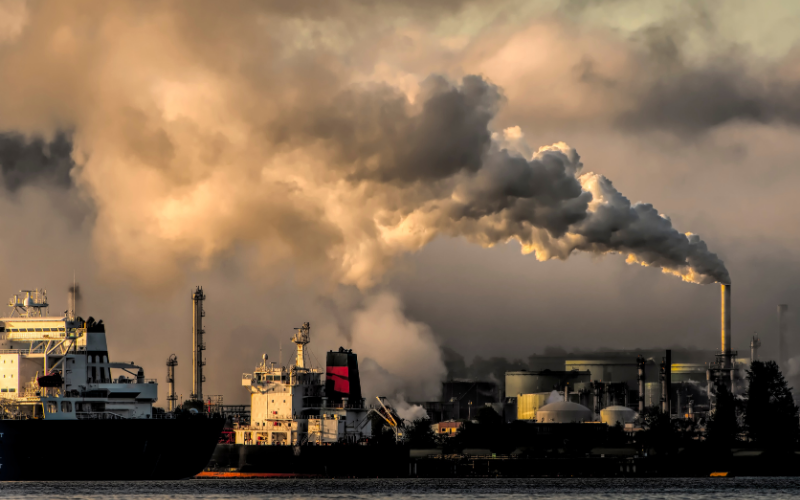
May 12, 2023 | Dr. Beverly Wright News, DSCEJ General News, Research and Policy News
May 12, 2023
NEW ORLEANS, LA – Following yesterday’s news of the EPA’s newly proposed pollution limits, Dr. Beverly Wright, Founding Executive Director of the Deep South Center for Environmental Justice, released the following statement:
“The steps the EPA is taking to limit deadly pollution from power plants are bold and necessary. The communities on the fence line of these plants, in most cases communities of color, have been suffering for decades as the fossil fuel power industry has been able to legally poison the water they drink and the air they breathe. The fight for stronger regulation of these polluting industries has been our mission for more than 30 years and we’ve worked with countless community advocates whose work on the ground has led us to this moment.
“In recent months, Administrator Michael Regan and the EPA have announced a string of new policies including proposed rules to strengthen standards on cancerous pollution and air quality standards. With each announcement, we are even more encouraged by the Biden Administration’s commitment to climate justice and protecting our fence-line communities. This is the type of action required to meet this moment in the crisis we are facing now.”
###
About the Deep South Center for Environmental Justice
Families in the Gulf Coast deserve to live in communities that are free from deadly air and are more resilient to climate change and extreme weather. The Deep South Center for Environmental Justice (DSCEJ) works to empower and engage communities to put environmental justice and equity at the center of all climate action. Led by environmental justice scholar and advocate, author, civic leader and professor of Sociology Dr. Beverly L. Wright, the DSCEJ uses research, education, and community and student engagement to advocate for policy change, lead health and safety training for environmental careers, develop social and emotional community wellness programs, and create new and environmentally healthy opportunities for the residents of communities disproportionately impacted by historic environmental injustice.
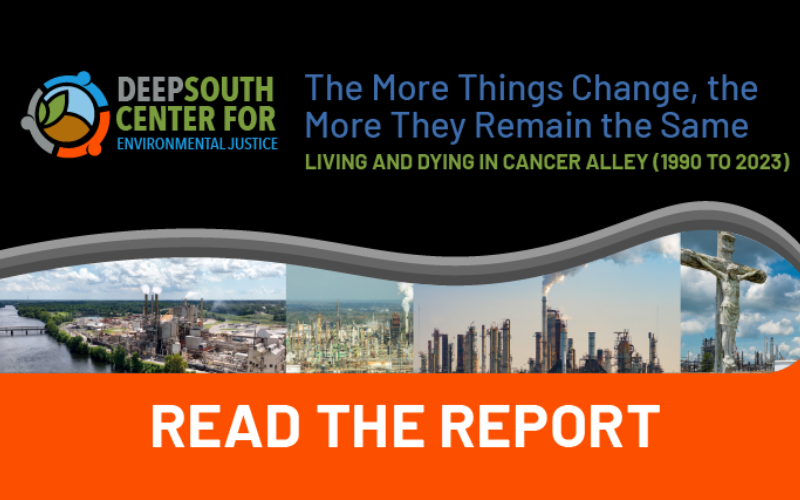
May 8, 2023 | Dr. Beverly Wright News, DSCEJ General News, Research and Policy News
New Report Illustrates Proximity of Petrochemical Facilities to Black Communities in the Mississippi River Chemical Corridor
FOR IMMEDIATE RELEASE: May 8, 2023
Contact: Ginger LeBlanc | gingerl@dscej.org
NEW ORLEANS, LA – Today, the Deep South Center For Environmental Justice (DSCEJ) released a new report titled “The More Things Change, the More They Remain The Same: Living and Dying in Cancer Alley” updating the organization’s’ 1990 mapping project that illustrates toxic pollution in relation to poverty and minority populations in the Mississippi River Chemical Corridor, also known as Cancer Alley.
The corridor produces one-fifth of the United States’ petrochemicals and has transformed the region’s working-class communities into some of the poorest and sickest communities in Louisiana. The new maps show that, while the area has technically seen a decrease in greenhouse gases and total air emissions, the risk has grown exponentially for Black communities. The region’s polluting facilities are concentrated almost exclusively in their backyards and environmental justice experts are now calling the region a “massive human experiment.”
“The data we’ve gathered to update our 1990 maps illustrates what we’ve known to be true anecdotally – Cancer Alley is one of the deadliest regions in the country for Black people,” said Dr. Beverly Wright, Founder and Executive Director of DSCEJ. “We’ve found that the more things have changed in the last 30 years for so many, the more things stay the same for Black communities, and in many cases have gotten worse. We have to stop the construction of new petrochemical facilities and reduce the concentration of them in minority communities. It’s the only way to protect people going forward and make sure that the suffering we’ve had to endure for decades does not continue.”
DSCEJ’S updated maps show Cancer Alley has 170 petrochemical facilities reporting toxic chemical emissions and 149 reporting greenhouse gas emissions.The number of facilities is only growing, with 29 in the proposal stage or currently under construction, all in majority Black communities. DSCEJ also factored in the growing cancer risk in the region with the exposure to these chemicals putting the area in the 80 to 90th and 95 to 100th percentile of cancer risk in the nation.
In September 2022, DSCEJ joined forces with local groups as part of the Beyond Petrochemicals campaign, Bloomberg Philanthropies’ $85 million effort to stop the expansion of more than 120 petrochemical plants in Louisiana, Texas and the Ohio River Valley.
“Fossil fuel pollution has degraded the lands and lives of Black and brown people for far too long – the time for accountability is now, ” said Heather McTeer Toney, Executive Director of the Beyond Petrochemicals Campaign. “Communities of color deserve the same access to clean air, water, and soil afforded to wealthier, white communities. The maps provided by Deep South Center for Environmental Justice showcase that there is much work to be done to achieve equity. With the decades-long, historical patterns of racial injustice in Louisiana’s ‘Cancer Alley’ exposed, we are inspired to put our resources to work to safeguard local communities and finally put an end to the expansion of the toxic petrochemicals industry.”
The new report is supported by Bloomberg Philanthropies’ Beyond Petrochemicals campaign. Click here to view the report and here to view the executive summary.
###
About the Deep South Center for Environmental Justice
Families in the Gulf Coast deserve to live in communities that are free from deadly air and are more resilient to climate change and extreme weather. The Deep South Center for Environmental Justice (DSCEJ) works to empower and engage communities to put environmental justice and equity at the center of all climate action. Led by environmental justice scholar and advocate, author, civic leader and professor of Sociology Dr. Beverly L. Wright, the DSCEJ uses research, education, and community and student engagement to advocate for policy change, lead health and safety training for environmental careers, develop social and emotional community wellness programs, and create new and environmentally healthy opportunities for the residents of communities disproportionately impacted by historic environmental injustice.

